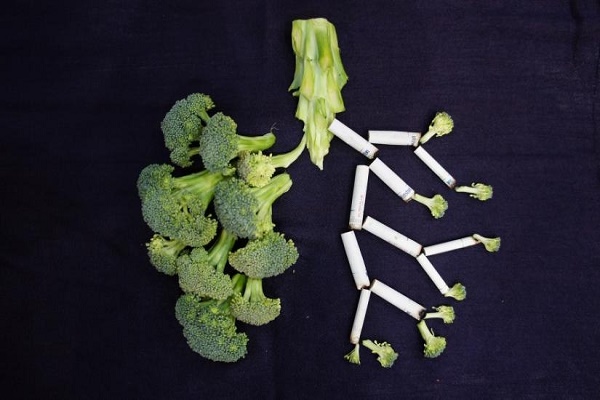
Follow us Now on Telegram ! Get daily 10 - 12 Interesting Updates. Join our Telegram Channel https://t.me/OhWomen
Download Telegram App before Joining the Channel
Lung cancer is still the leading cause of cancer deaths worldwide. In India, alone, lung cancer accounts for a majority cancer burden, with 1 in 68 males falling victim to it. Moreover, several sources state that around 80 per cent of lung cancers are diagnosed at an advanced stage. Having said that, medical science and the healthcare fraternity has done a lot of progress to reduce the burden of lung cancer and to save as many lives as possible.
There has been a rapid and exponential development in the modalities to manage lung cancer. Right from tools to augment early diagnosis, to targeted chemotherapies, to minimally invasive procedures to treat cancer, healthcare today has a plethora of intervention that can help patients with lung cancer.
But smoking remains the catalyst of higher risk of cancer and the leading contributors to lung cancer in India. So, the question is how do we tackle the burden if India's population continues to smoke death?
Quitting can completely reduce the risk multifold. But if you are already a smoker, how does one go about detecting lung cancer?
EARLY DIAGNOSIS OF LUNG CANCER IS INSTRUMENTAL: Smoking is gauged with the number of packets a person smokes per day, for the number of years smoked. In India, as the number of cigarettes per packet are less, a different tool like 'smoking index' is estimated. A low dose CT scan of the lungs is approved for screening of lung cancer in the west, as it has shown to improve survival by detecting the cancer early. In India, people with high smoking index can discuss with their healthcare providers to see if they qualify for a screening CT scan. People suffering from COPD due to smoking are at higher risk and can discuss the timing and need for getting a CT scan for lung cancer screening. Surgery or in some cases Stereotactic Body Radiation Therapy (SBRT) cures the lung cancer when detected early.
STAGING OF CANCER IS EQUALLY IMPORTANT TO DIRECT TREATMENT LINE: Once lung cancer is diagnosed, the next important step which guides the treatment appropriately is accurate staging. There are imaging techniques which can guide when and how a tissue can be acquired through biopsy for staging and molecular testing. Stages in lung cancer range from stage one to four, with multiple substages as well, to prognosticate and optimally treat the cancer. A minimally invasive procedure called Endobronchial Ultrasound Guided Transbronchial Needle Aspiration (EBUS-TBNA) is now widely available around the country which helps in accurate staging with minimal risk. This procedure is done by a Pulmonologist usually after a PET CT. It can also help in restaging of cancer during the entire treatment course and after.
There is molecular profiling carried out for the type of Lung cancer. That includes checking for different genetic mutations that the tumor exhibits in the tissue acquired by biopsy. They can be EGFR, ALK, PDL1, ROS and so on. These help in guiding oral targeted chemotherapy to a particular mutation. These are better tolerated drugs which have shown to improve survival in patients with advanced lung cancer. The survival when treated appropriately has improved from months to years.
TACKLING COMMON PROBLEMS IN LUNG CANCER: A common problem in advanced lung cancer is fluid accumulation in the pleural space. It is the space between lungs and the chest wall. This fluid prevents lung expansion and presents with breathlessness, a very uncomfortable symptom. There are multiple modalities to tackle this menace. Pleuroscopy -- a medical Thoracoscopy can help in diagnosis and treatment of the Pleural Effusion in the same setting. It is carried out under sedation and local anesthesia in an endoscopy suite. A procedure known as Pleurodesis where the space is obliterated by using an external agent helps prevent refilling of the fluid and improves the quality of life tremendously. Also, small indwelling pleural catheters are available which stay secured in the chest wall and help in ambulatory drainage of pleural fluid when refilling of the fluid occurs. These have replaced a lot of primitive more morbid modalities of treatment, helping the patients lead a better quality of life even with cancers in an advanced stage.
At the end, it is important to note that prevent is better than undergoing the pain and process of treatment. Quitting tobacco consumption is effective and there are different ways in which healthcare providers help people quit and lead a healthy life. But if you are smokers and experiences symptoms like a long-standing cough that gets worse, chest infections that keep coming back, coughing up blood, pain when breathing or coughing and persistent breathlessness, you must speak to your doctor.
Source - IANS